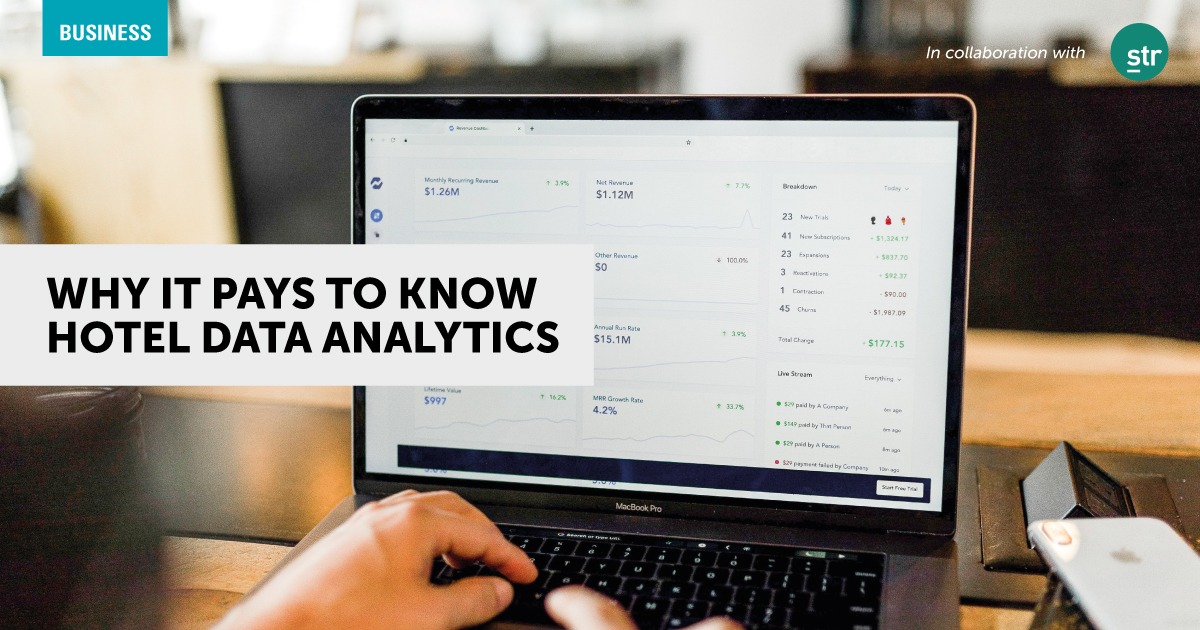Kostas Nikolaidis, Middle East & Africa executive for STR, examines the importance of accurate data analysis in the hospitality industry.

Training, learning and development are core principles of the tourism and hospitality industry. In recent years, an ever-evolving landscape and acute competition has led to increased specialization, evidenced by the large variety of job roles at modern hotels. This has resulted in greater complexity, more procedures and arguably a need for a diverse skillset achieved through increased staff training. An often-overlooked faculty in the hospitality industry is data analytics. Despite the digital revolution of recent decades and the increasing adoption of technology, the very science of analyzing data and reaching conclusions has proven rather elusive for most industries, but not in the case of hotels.
The COVID-19 crisis has further underlined the critical need for data and the importance of correctly analyzing it globally. Decisions regarding government response, lockdowns, forecasts and recovery scenarios have primarily been based on data, and it couldn’t have been any other way given the scale and speed of the pandemic. Echoing the famous words of William Edwards Deming, “Without data you’re just another person with an opinion” — a fact pretty much all of us are reminded of every day through COVID-19 case numbers, growth rates and curves that dominate the news.
In the hotel context particularly finance and revenue functions, which have traditionally been more number and data driven, this brings about a series of challenges and considerations for the uncharted waters that lie ahead. What key skills are required during this time when hotels are faced with a plethora of difficult decisions that need to be made at the right time? Another befitting quote that springs to mind is Benjamin Franklin’s: “By failing to prepare, you are preparing to fail.” How prepared have hoteliers been for this crisis, and how prepared are they for the recovery phase?
The pandemic has brought about very volatile and fluid market conditions, with the introduction of new data sets and parameters becoming increasingly significant for timely and informed decision-making. For example, it has been well documented from previous episodes that it is fundamental for hotels to effectively manage cash flows and profitability during a downturn. In addition, the adoption of agile total revenue management strategies to seek out new revenue streams, such as food delivery from hotel F&B outlets, has also been important. It is now more essential than ever for hoteliers to maintain complete commercial awareness and an open-minded, nimble approach in response to changes in their market.
As for the recovery phase, forecasting skills and tools emerge at the forefront of the agenda. Effectively tracking and benchmarking metrics, such as demand on the books, will be yet another arrow in the smart hotelier’s quiver. The target should now be clear; it is all about kick-starting demand. After all, it has been fundamentally the lack of demand that has brought the hotel and tourism industry to this state, and it will be demand that will bring it back to life.
It is therefore paramount for hoteliers and tourism professionals to not remain complacent despite the current situation. Data analysis skills are becoming even more important since the industry will be looking for direction as to when and how recovery will begin and develop. Continuous learning, upgrading skills, and an open-minded approach to new tools and technologies will pave the path to success. Even with “corona” budgets in place, there is a lot accessible for free. In these turbulent times, a lot of content and resources are available online and at no cost. STR’s COVID-19 blog is a good starting point for anyone looking to get a taste of what the hotel industry looks like through the latest hotel performance data, with free access to webinar recordings, articles, press releases and other resources. Our world will be moving forward with many lessons learned after the pandemic, and we should all be ready.

Kostas Nicolaidis
Middle East & Africa Executive
STR












